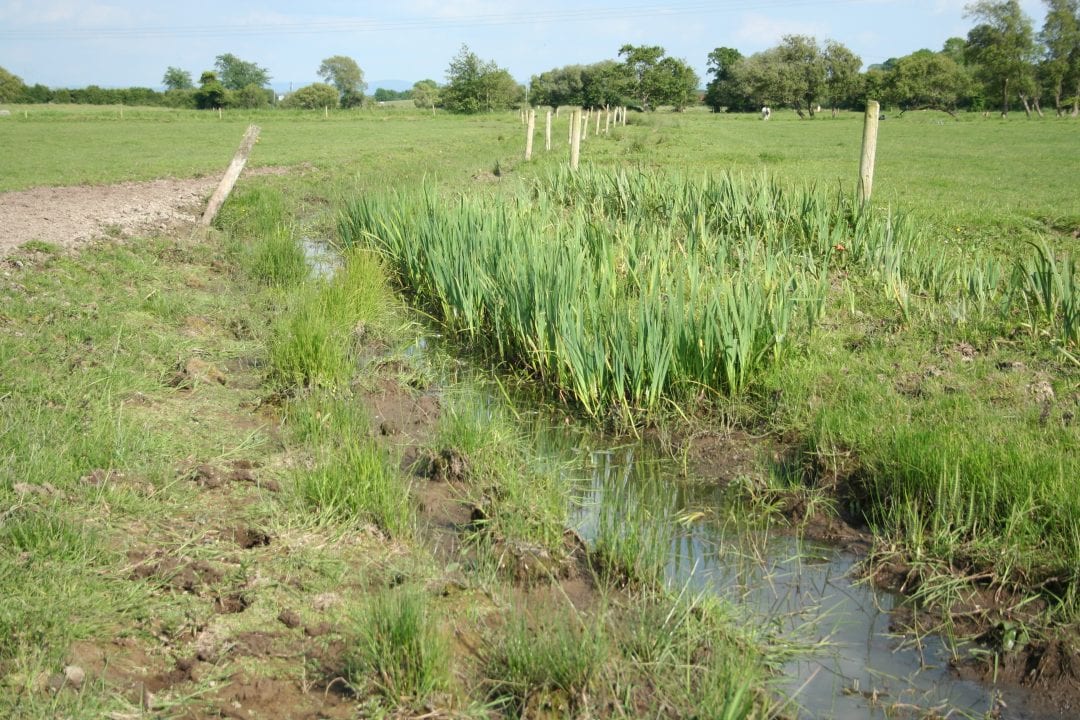Photo: Curlew chick feeding habitat on farmland
BirdWatch Ireland has written to Ministers McConalogue, Hackett and Noonan calling for them to find 17 million euro to put in place a robust national scheme to support farmers to save threatened farmland birds.
BirdWatch Ireland has identified that a scheme underpinned by at least a 30 million euro is required to support farmers to undertake habitat and other measures to save Ireland’s breeding waders from extinction. Those are Curlew, Lapwing, Dunlin, Golden Plover, Redshank and Snipe. In this regard, the Irish Government is found wanting, as to date it has only secured 13 million euro in Ireland’s Common Agriculture Policy Strategic Plan, split between the Department of Agriculture, Food and the Marine and the Department of Housing, Local Government and Heritage.
Oonagh Duggan, Head of Advocacy at Birdwatch Ireland said, “The budget for farming in the next CAP is 9.8 billion euro yet a mere 6 million euro of this has been allocated to pay farmers to protect and restore farmland for Curlew and other breeding waders, the most threatened of our farmland bird species. This is not even one-sixteenth of a percentage point of the available funds while 1.25 billion is allocated to the Area for Natural Constraints scheme yet it has no linkage with environmental action. And the 1.5 billion ecoscheme is very weak on environmental ambition”.
“Coupled with the right policies, the breeding wader scheme is one which can deliver real results if properly funded. Farmers want to act for nature but need the funding to enable them to do so. We call on Ministers McConalogue, Noonan and Hackett to work together to secure the additional 17 million needed to ensure a robust national breeding wader scheme is in the next CAP. We know that conservation actions work, but political will and investment is urgently needed to fund these actions before it is too late.
“Agriculture policy has played a significant role in driving the losses of bird species like Curlew and Lapwing, and funds must be found in Ireland’s budget for the Common Agriculture Policy to stop these declines and reverse them. If these species go extinct in Ireland, costly re-introduction plans will be required and no one wants to be in that position. The time to invest in our natural heritage is now.”
Breeding waders are the most threatened group of farmland birds. Loss of populations and range is down to policies which have encouraged specialisation and intensification in agriculture, peat cutting and now afforestation policy and the impacts of predation too.
| Breeding Waders | Conservation Status (BoCCI 2020) | Percent Change 1970-2010 | Percent Change 1990-2010 |
| Curlew | Red List | -78 | -73 |
| Dunlin | Red List* | -69 | -71 |
| Golden Plover | Red List* | -50 | -42 |
| Redshank | Red List | -55 | -47 |
| Lapwing | Red List | -53 | -33 |
| Snipe | Red List | -34 | -8 |
| Figures from Bird Atlas 2013 | |||
| * = Annex 1 Birds Directive | |||
Farm schemes for waders, also have benefits for other threatened ground nesting birds, including skylark and meadow pipit, insects including pollinators, species rich and High Nature Value grasslands. These sustainable agricultural systems, contribute to improving water quality, mitigating greenhouse gas emissions, and support a healthier agri-environment overall. We know that conservation actions work but political will and investment is needed to fund these actions.
Recently the European Commission sent a letter to the Irish Government stating that its approval of Ireland’s Common Agriculture Policy Strategic Plan and its budget of 9.8 billion euro in citizens’ funding hinges on a significant ramp-up in environmental ambition. The necessary measures include reversal of farmland biodiversity loss, effectively tackling polluted waterways and cutting greenhouse gas emissions from agriculture. However, BirdWatch Ireland analysis shows that only 7% of the overall budget targeted towards the Cooperative Projects will result in effective action for the environment, with the rest going to fund measures that are not targeted enough to secure environmental improvements. BirdWatch Ireland’s submission to the observation letter states clearly what needs to be done to get Ireland on track to meet environmental obligations within the CAP.
Oonagh Duggan continued, “CAP public funds should be redirected to pay for public benefits on farmland. Farmers desperately want to act on climate, water quality and biodiversity loss and should be supported to do so. It is outrageous that so little funding is allocated to these and that schemes are not designed to ensure quality outcomes.”
One of the objectives of the CAP is that agriculture funds must contribute to reversing the losses of farmland birds. BirdWatch Ireland has mapped out where these species are and Ireland’s CAP Strategic Plan is not doing anywhere near enough to meet this objective. If Government fails to fund the breeding wader scheme adequately it will mean that they have turned their back on these most threatened of our farmland birds and that will be the lasting legacy of this government.


